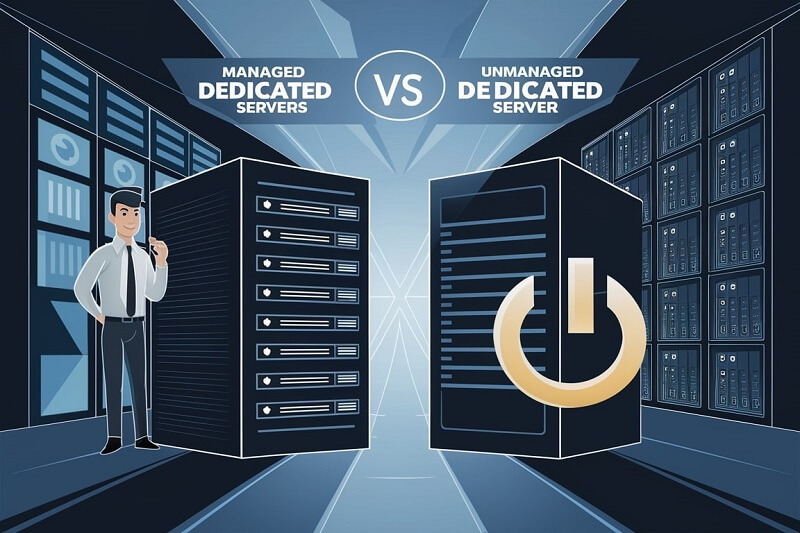When we talk about servers and hosting, we stumble upon many solutions that we get confused about which one to choose. Out of different hosting solutions, the dedicated web server is quite popular, and companies normally want to get along with the dedicated server as they don’t want other spammy sites to be shared in their hosting.
What are the Dedicated Servers?
These are the single-tenant servers that are dedicated to the single clients. It’s not shared with anyone else or the other user. Since the server remains dedicated to the single user, one gets better performance, speed, security and control. But the story doesn’t end here actually since there’s a lot more to it. The hosting service providers offer the Managed Dedicated Servers and the Unmanaged Dedicated Servers.
Managed Dedicated Server
Managed dedicated servers are meant for those clients and companies that are not willing to handle the daily management of their servers in-house. If you’re already in this industry, you would surely realize that Server management is a challenging task. Perhaps that’s the reason why clients prefer focusing on other aspects of their business rather than getting messed up with server technical problems and jargon. When you get a managed dedicated server, the expert system administrators will take care of the management so that clients can allocate all of their resources in building their applications & growing their business.
While buying the managed dedicated hosting, you get rid of all the hardware problems, and the service providers take preventative measures to keep a server running smoothly & replace parts in case they fail. The service providers are responsible for checking performance & load monitoring identifying potential problems before they turn up severe. The server admins will also be monitoring the database & web server ensuring that everything is working in order.
For most of the valuable clients that buy Managed Dedicated Servers, they provide security basics as well. Did you know that the biggest risk when self-managing a server without enough technical expertise is the occurrence of security vulnerabilities? But with managed dedicated servers, providers ensure that your server is secure. This also includes updating the operating system. Here’re a few Pros of Managed Dedicated Servers that you must check out;
- Server hosting provider is supposed to look after the application management like addition, deletion & configuration of applications.
- Database management will also be looked after like adding and deleting users to the database.
- You Entire Infrastructures will be monitored thoroughly. It will help in staying on top of any errors & performance outage.
- The Service provider will ensure better stability, server reliability and flexibility.
- 24×7 advanced tech-support will be provided so you can get help whenever you want.
- Backup services will be provided so your data won’t be lost.
- Additional security services like anti-virus & anti-spam services. Most importantly, the security audit & DDoS attack protection etc.
- Technical troubleshooting & setup assistance. If necessary, the system admin can also have the Customized OS installations.
Unmanaged Dedicated Servers
When you buy unmanaged dedicated servers plans, you can manage your server all by yourself. It’s an ideal choice for those who don’t want service providers to manage but hire a separate team for that. Service providers are only supposed to look after the hardware, network connection, & other important things the server needs to run reliably. Providers will also install the operating system on your server.
Here’re a few pros of Unmanaged Dedicated Servers;
- You won’t be charged additionally for server management services
- You will be having the total control of the server as an owner.
- You have all the rights to install the programs of choice & perform desired configurations as per your business needs.
Summary
Do you want to learn more about the difference between manage dedicated server and unmanaged dedicated server? Just check out the article now.
